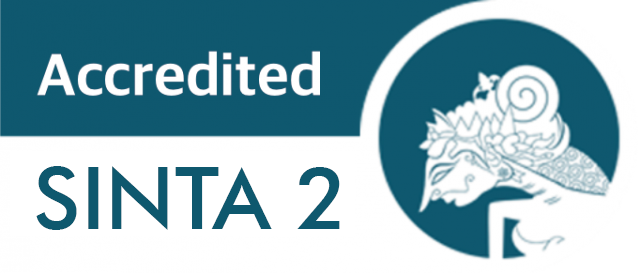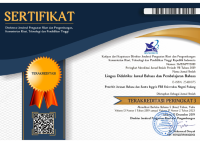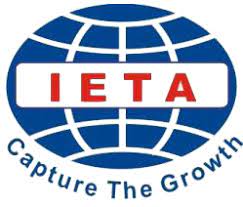STUDENTS’ PRESENT CONDITION IN IMPLEMTING ENGLISH FOR HOSPITALITY PROGRAM
 ), Audi Yundayani(2),
), Audi Yundayani(2), (1) Siliwangi University
(2) STKIP Kusuma Negara, Jakarta
 Corresponding Author
Corresponding Author
Copyright (c) 2018 Lingua Didaktika: Jurnal Bahasa dan Pembelajaran Bahasa
DOI : https://doi.org/10.24036/ld.v12i2.101083
Full Text:
 Language : en
Language : en
Abstract
Keywords
References
Amin, Muhammad., Arifuddin dan Nurahmadi. (2017). Pragmatic competence and learning needs of English for students of Tourism Vocational Schools in Nusa Tenggara Barat Province, International Journal of Educational, 4(4), (p. 53).
Basturkmen, H. (2010). Developing courses in English for specific purposes. New York: Palgrave Macmillan.
Belyaeva, Anastasiia. (2015). English for Specific Purposes: Characteristic Features and Curriculum Planning Steps. Journal Sustainable Multilingualism, 7, (p. 73).
Chovancova, Barbora. (2014). Needs Analysis and ESP Course Design: Self-Perception of Language Needs Among Pre-Service Students. Journal Studies in Logic, Grammar and Rhetoric, 38(51), (p. 43).
Clark, Vicki L. Plano., and John W. Creswell. (2015). Understanding Research. A Consumer’s Guide. Second Edition. USA : Pearson Education, Inc.
Cummins, Jim dan Chris Davison. (2007). International Handbook of English Language Teaching. Part I. New York: Springer Sciences-Business Media, LLC.
Dudley-Evans, T., & St John, M. J. (1998). Development in English for specific purposes: A multi-disciplinary approach. USA: Cambridge University Press.
Eshtehardi, Reza. (2017). Needs Analysis and Course Design; A Framework for Designing Exam Courses. International Journal of Applied Linguistics & English Literature, 6 (6), (p. 274).
Farahdiba, Syarifah., and Andi Asrifan, (2016). Speaking Ability and Psychological Barriers of the Second Year Students of Hotel Department of SMKN 1 Sidenreng Kabupaten Sidrap in Speaking English. Asian EFL Journal. Issue 89, (p. 41).
Goodyear, Leslie, Jennifer Jewiss, Janet Usinger, and Eric Barela. (2014). Qualitative Inquiry in Evaluation. San Francisco: Jossey-Bass.
Hyland, K. (2006). English for academic purposes: An advanced resource book. New York: Routledge.
Kardijan, D., Emzir, & Rafli, Z. (2017). The gap between learning needs and its’ implementation in English for hospitality specific purposes program. English Review: Journal of English Education, 6(1), (p. 125).
Murray, Denise E. and Mary Ann Christison. (2011). What English Language Teachers Need to Know:Volume II. New York: Routledge.
Otilia, S. M. (2015). Needs analysis in English for specific purposes. Annals of the „Constantin Brâncuşi” University of Târgu Jiu, Economy Series, 1 (II).
Paltridge, B., & Starfield, S. (2013). The handbook of English for specific purposes. USA: John Wiley & Sons, Inc.
Placklé, Ingeborg., K.D. Könings, W. Jacquet, K. Struyven, A. Libotton, J. V. Merriënboer & N. Engels. (2014). Students’ Preferred Characteristics of Learning Environments in Vocational Secondary Education. International Journal for Research in Vocational Education and Training; 1 (2), (p. 107).
Rahman, Momtazur. (2015). English for Specific Purposes (ESP): A Holistic Review. Universal Journal of Educational Research, 3 (1), (p. 24).
Stake, E. R. (2004). Standards–based & responsive evaluation. California: Sage Publication, Inc.
Stufflebeam, L. D., & Coryn, C. L. S. (2014). Evaluation theory, models, and application. San Francisco: Jossey-Bass.
Syahputra, Muhammad Halfi Indra,, Mardji, Dwi Agus Sudjimat, and Sitti Raha Agoessalim, (2016). Hotel System Learning for SMK Students of Hospitality Accommodation Study Program. Proceedings of the International Mechanical Engineering and Engineering Education Conferences. AIP Conf. Proc. 1778, (p. 1).
Ulla, M. B., & Winitkun, D. (2017). Thai Learners’ Linguistic Needs and Language Skills:
Implications for Curriculum Development. International Journal of Instruction, 10(4), (p. 203).
Yundayani, A., Emzir, & Rafli, Z. (2017). Need analysis: The writing skill instructional
material context for academic purposes. English Review: Journal of English
Education, 6 (1), (p. 59).
Yundayani, A. (2018). Present situation analysis: Students’ early characteristics in writing for academic purposes. English Review: Journal of English Education, 6(2), (p. 119).
Zahedpisheh, Nahid,, Zulqarnain B Abu bakar, and Narges Saffari. (2017). English for Tourism and Hospitality Purposes (ETP). Journal English Language Teaching, 10 (9), (p. 86).
 Article Metrics
Article Metrics
 Abstract Views : 583 times
Abstract Views : 583 times
 PDF Downloaded : 138 times
PDF Downloaded : 138 times
Refbacks
- There are currently no refbacks.
Copyright (c) 2018 Lingua Didaktika: Jurnal Bahasa dan Pembelajaran Bahasa

This work is licensed under a Creative Commons Attribution-NonCommercial 4.0 International License.









